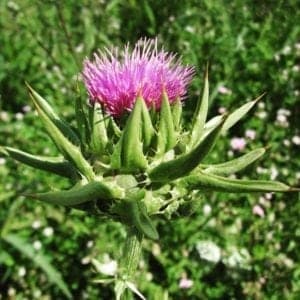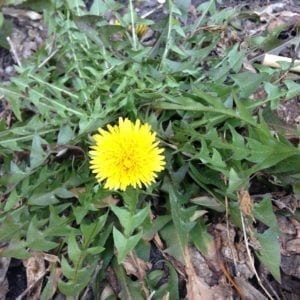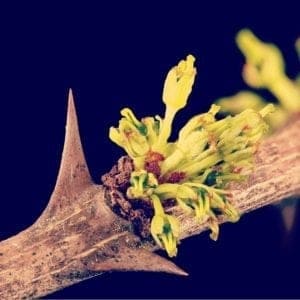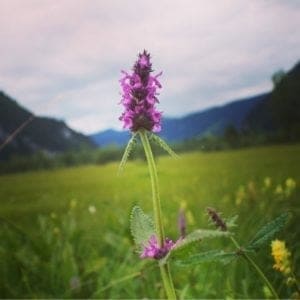Frequently Asked Questions
Does completing one of your programs make me a "certified" herbalist? Will I receive a certification upon completion of your program? Is your school accredited?
This is a common question for students new to herbalism. The short answer is: we do provide our graduates with a certificate which documents their class time hours and the subjects of study. That said, the long answer is . . . a little longer! Here we go:
The fact is, almost no herb schools are accredited in this country. The Colorado School of Clinical Herbalism in Boulder is a notable exception. However, that accreditation is through the state vocational board, and is quite costly - $30,000 - $50,000 per year! Because not all states’ vocational boards will accredit herbal schools, and because of the expense, most herb schools just can't afford or attain accreditation. Additionally, there is no certifying board for herbalism in this country – which removes the need for accreditation anyway. Accreditation becomes just a cost burden that ends up making the education more expensive.
It means that the responsibility is on the student to find out ahead of time whether the school they want to study at is reputable or not – which makes things more difficult in the beginning, but on the other hand, just going through that process is an education in itself!
In lieu of accreditation, there are a number of things you can investigate to evaluate a school. Referrals and reviews from previous students can be helpful. You can also find information about the school’s teachers – such as whether or not they speak at national conferences, teach for other organizations such as local colleges and universities, publish articles in herbal magazines and journals, and see clients regularly, as well as who they studied with. Learning something about the elders in the field of herbalism is also useful – when you interview teachers, you can ask them their opinions about the work of various elders. It's a really good idea, also, to attend a drop-in class at the schools you're interested in, to see whether you like the teaching style of the teacher(s) and whether you feel comfortable in the school space. Another thing is to check out the blog or other writings of the school’s teacher(s) – do you like the stuff they're thinking about? If their writing resonates with you, that's another good indication of whether or not it's a good fit.
In our case, we both have published articles in the Journal of the American Herbalists' Guild, Plant Healer Magazine, AromaCulture magazine, and the Journal of the Northeast Herbalists Association. We have taught at the American Herbalist's Guild Symposium, Traditions in Western Herbalism Conference, Integrative Medicine for the Underserved Conference, and of course at Herbstalk, our local herb conference (which was founded by one of our graduates). We are also adjunct/associate faculty at MCPHS and Northeastern University. We have a fair amount of writing posted in our blog, weekly podcasts, and a growing amount of free content posted to our YouTube channel.
Definitely beware of any schools that promise you will be a "certified" herbalist – there is no such thing in this country. It is appropriate to receive a certificate or some kind of documentation of your hours of study – and you can use that towards membership in the American Herbalists' Guild as a Registered Herbalist, if you should decide to pursue that – but that certificate will only document your hours of study. We do provide such documentation to those who complete our programs, and we are happy to help you through the application process.
It can seem a little intimidating, but to be honest, we like the lack of regulation. When clients come to see us, it is up to them to decide whether we are good practitioners and whether they should follow our advice – unlike a doctor who has a piece of paper on the wall saying you should trust him. Of course, not every doctor is good! But they all have that piece of paper. The lack of "the paper" means that students and clients remain fully engaged and in control of their own process, instead of relying on us to be in control for them. This makes it clear that our work is as educators and collaborators, and clients and students are empowered in that relationship.
In the end, it is actually each individual's responsibility to decide for themselves whether or not their health practitioner is reputable, but we often forget that in this culture. Because there is no licensure or regulation of herbalists, people can't forget it. And that's the first step to taking responsibility for one's own health, because of course in the end, no one can heal you except you! Your doctor can't make you take your medicine, and your herbalist can't make you drink your tea or change your diet – only you can do that. When people know that they themselves need to decide whether they agree with their herbalist's recommendations, they also know that they are responsible for following through for themselves.
So, it's more work, but we think it's a good thing.
I want to be a Registered Herbalist with the American Herbalists' Guild.
Great! We can help!
We think that professional membership in the AHG or one of the international herbal professional organizations is an important step to take. Although herbalists aren't licensed in the US, professional membership is a way that you can show that you have attained the highest credential available. It's a way to show that you take safe, responsible practice seriously, and to show that you have put in the time to become fully trained.
Our program exceeds the requirements both for the Registered Herbalist application with the AHG as well as all of the international professional organization - and we think that's important. We want you to submit your application and feel confident when you take the exam. We want you to be accepted on your first submission, and to move into practice with confidence and skill.
We're happy to help you through the application process, and we have developed a tracking tool that will help you organize all the requirements for whichever professional organization you choose - you can get it free right here!
Can I join the Clinical Herbalist program without completing the Family & Community Herbalist programs? What if I have completed an herbal program at another school?
You may jump right into the Clinical Herbalist coursework!
If you are interested in the Clinical Mentorship program, you must complete either the Family + Community Herbalist Program and pass the exam, OR if you are transferring from another school, you must complete the Clinical Herbalist coursework and pass the exam, before you can begin mentorship.
We do require that you complete the coursework and pass the exam for either Community Herbalist or Clinical Herbalist before you start working live in clinic with us.
We do not want to put students in a position where they don't have what they need to feel confident, and we don't want to put clients in a situation where they are not receiving the best care and support.
We want to ensure that all students have an empowering and successful experience as they prepare for their own clinical practice!
What kind of job could I get if I finished your programs?
People do lots of different things! In this country, herbalism is neither licensed nor regulated, so there's not exactly the same kind of career track that you would see if you went to a four-year college. However, if you're looking to start your own business as a consulting herbalist, or producing herbal products, or herb farming, or teaching, or lots of other things you could dream up, you'll be ready to go! As part of the Clinical Mentorship program, students work on their business plans, launch websites, get newsletters going, publish articles in magazines, and lots of other get-your-business-going activities, in addition to the herbal work.
Some people choose to incorporate herbalism into the jobs they already have, for example, massage therapists, psychotherapists, and other holistic practitioners who already have practices and want to expand their offerings. Some people want to open shops, or manage holistic health and beauty departments in existing stores, or work for supplement or herbal product companies.
While we don't provide any kind of job placement services, we do pass along job postings to the student body when we receive them. Mostly, however, our students either want the information for their own betterment, or to go into business for themselves.
You can read about some of our graduates and their successes on our Students and Graduates page.
Do you offer Financial Aid?
We price our programs lower per hour than most other schools, because we want to make an herbal education as accessible as possible. You can find our scholarship information here, the second half of the page.
It's good to remember that you don't have to come up with all the funds yourself! The skills you'll be learning will be valuable in your community, so you can ask your friends, family, and community to support you in your learning! Consider offering to share your knowledge in exchange for people contributing to your tuition, or offering to make tasty herbal blends for your supporters. We try to keep tuition as accessible as possible, and you can ask your community to help you fill in the gaps. You might like this fundraising idea!
Do you have a question for us?
Cultivate Your Herbal Knowledge
Start learning right now with our Herb of the Week series.

Join our newsletter for more herby goodness!
Get our newsletter delivered right to your inbox. You'll be first to hear about free mini-courses, podcast episodes, and other goodies about holistic herbalism.




